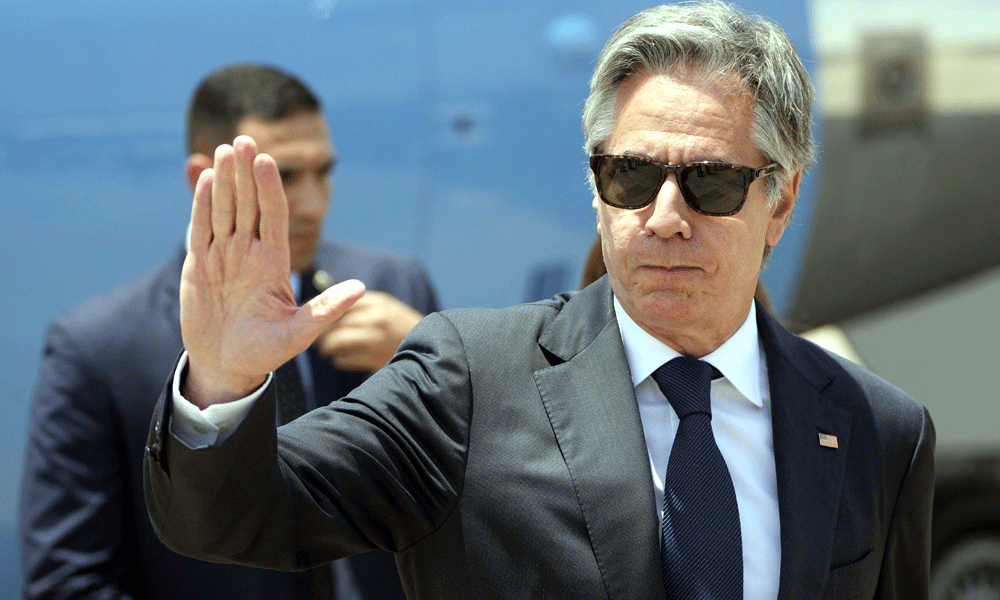US Secretary of State Antony Blinken landed in Israel on Tuesday, kicking off a broader tour of the Middle East aimed at revitalizing ceasefire discussions in Gaza and addressing the region’s future following the death of Hamas leader Yahya Sinwar. However, experts believe significant breakthroughs may be unlikely before the upcoming US elections.
This marks Blinken’s eleventh visit to the area since the Gaza conflict erupted on October 7, following attacks by Hamas on southern Israel. His visit comes amidst intensified Israeli military operations in both Gaza and Lebanon against the Iranian-aligned Hezbollah militia.
Blinken’s week-long journey will also include stops in Jordan and Doha, and coincides with increasing tensions after Iran’s missile attack on Israel on October 1. Analysts warn that Israel’s retaliation could disrupt oil markets and potentially escalate into a broader conflict.
In discussions about Gaza, Blinken is expected to focus on ending the war, future plans for the enclave, and improving humanitarian aid. According to a senior State Department official, last week Blinken and Defense Secretary Lloyd Austin urged Israel to adopt concrete measures to improve the situation in Gaza, warning of potential restrictions on US military support if conditions do not improve.
Blinken’s meetings will delve into various “day after” issues, including security, governance, and reconstruction, which are deemed crucial for a lasting resolution.
Additionally, the Secretary will address how to secure a diplomatic solution regarding Hezbollah and will continue to discuss Israel’s planned response to Iran’s aggression.
Experts indicate that with both Hamas and Israeli leadership unlikely to make significant concessions ahead of the November 5 US presidential election, the prospect of achieving a breakthrough during this trip seems slim. “It’s very hard to imagine” significant progress, noted Aaron David Miller from the Carnegie Endowment for International Peace, suggesting that an immediate resolution may not be feasible.
While the US administration views the killing of Sinwar as a potential turning point, Israeli Prime Minister Netanyahu has signaled that military action will persist. Analysts argue that Netanyahu may choose to wait until after the conclusion of President Biden’s term in January before reassessing his approach based on the next US president.
Despite ongoing tensions, Deputy State Department spokesperson Vedant Patel reaffirmed the US commitment to engaging with Israel and regional partners, emphasizing that there remains an opportunity to advance ceasefire discussions, even if the exact outcomes of this trip are uncertain.
















